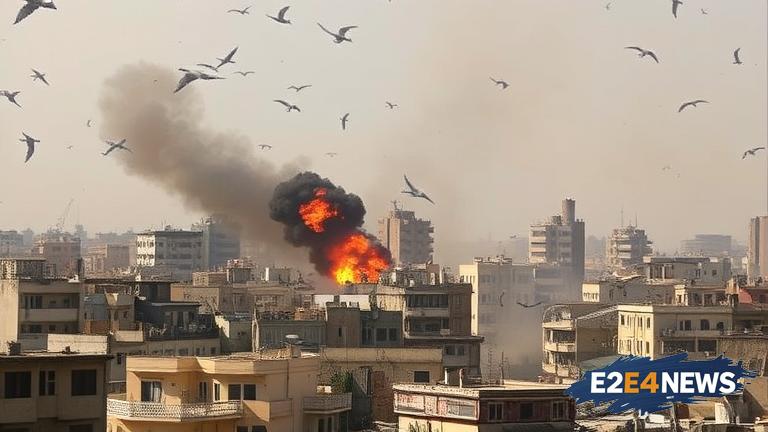The situation in Gaza continues to deteriorate with the latest round of Israeli airstrikes claiming the lives of 20 more Palestinians. This recent escalation of violence has brought the total death toll to alarming numbers, with many more injured and displaced. The airstrikes, which targeted various locations across Gaza, have been met with widespread condemnation from the international community. The United Nations has urged for an immediate ceasefire to prevent further loss of life and to allow for humanitarian aid to reach those in need. Despite these calls, the violence persists, with both sides showing no signs of backing down. The conflict has also had a significant impact on the region’s infrastructure, with many buildings, including homes, schools, and hospitals, being destroyed or severely damaged. The humanitarian crisis in Gaza is deepening, with thousands of people in urgent need of medical attention, food, and shelter. The international community is under increasing pressure to intervene and find a peaceful resolution to the conflict. The United States, European Union, and other global powers have been engaged in diplomatic efforts to broker a ceasefire, but so far, these efforts have been unsuccessful. The conflict in Gaza is part of a larger and more complex issue, with deep-rooted historical, political, and religious factors at play. Understanding these factors is crucial to finding a lasting solution. The Israeli-Palestinian conflict has been ongoing for decades, with periods of relative calm punctuated by outbreaks of violence. The current situation in Gaza is a stark reminder of the need for a comprehensive and sustainable peace agreement. The Palestinian people have the right to self-determination and statehood, while Israel has the right to exist and defend itself. Finding a balance between these competing interests is the key to resolving the conflict. The role of the international community is critical in this process, providing support for peace negotiations and applying pressure on both sides to compromise. The use of force and violence only serves to exacerbate the situation, causing immense suffering for innocent civilians. It is imperative that all parties involved prioritize the protection of human life and the pursuit of peace. The world watches with bated breath as the situation in Gaza continues to unfold, hoping for a swift and peaceful resolution. In the meantime, the people of Gaza remain in a state of constant fear, their lives disrupted by the sound of airstrikes and the threat of violence. The need for a peaceful and lasting solution has never been more urgent. The international community must come together to support the people of Gaza and to work towards a future where peace, stability, and prosperity are a reality for all. This can only be achieved through dialogue, compromise, and a commitment to the principles of justice, equality, and human rights. As the conflict rages on, it is the civilian population that bears the brunt of the violence, with women, children, and the elderly being disproportionately affected. The psychological trauma caused by living under constant threat of attack cannot be overstated, with long-term effects on mental health and well-being. Furthermore, the economic impact of the conflict is significant, with Gaza’s economy being severely strained due to the blockade and the destruction of infrastructure. The rebuilding of Gaza will require significant investment and support from the international community. In conclusion, the situation in Gaza is a stark reminder of the devastating consequences of conflict and the urgent need for a peaceful resolution. It is the responsibility of the international community to support the pursuit of peace and to hold all parties accountable for their actions. Only through collective action and a commitment to the principles of humanity can we hope to bring an end to the suffering of the Palestinian people and to create a brighter future for all.





